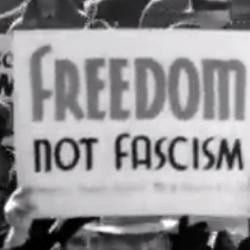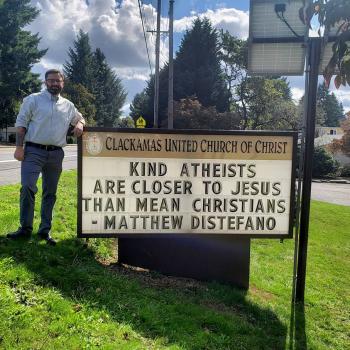For some of you who read my publications and blogs, I share my faith journey. As of today, some of the biggest regrets about my faith and religious life were leaving the Episcopal Church during my years at Baylor University from 1990-1994, starting a more conservative (instead of progressive) church life with my husband of 30 years in 1994, some regrets (not all) about becoming Catholic in 2016, and not understanding LGBTQ+ life issues much sooner. Even though I have some regrets, I learned some very valuable lessons during my lifetime of faith experiences.
The consecration of the first openly gay Episcopal clergyman, Episcopal Bishop Gene Robinson in 2003, was an event that many Americans and Episcopalians didn’t understand over 20 years ago. Now that I understand the science of sexual orientation, I understand that someone with a homosexual orientation marrying a heterosexual spouse can cause catastrophic damage to the gay person and the family created, particularly later in life. Through my Catholic experience, I learned that very few people are called and capable of a celibate life without incurring lasting phycological damage or even death. https://www.psychologytoday.com/us/blog/minority-report/201804/the-incel-involuntary-celibacy-problem
For Episcopal Bishop Gene Robinson in the 1990s, he as a gay man married a woman and created a traditional family because gay marriage wasn’t widely accepted or available until 2015. Bishop Robinson married a woman as a gay man in 1972 and thought he could potentially live as a heterosexual man, especially as a clergyman who was expected to live as a heterosexual married man in the 1990s. Most people today in 2024 understand that a homosexual marrying into a heterosexual marriage isn’t a good idea and it will most likely lead to destruction later. When Bishop Gene Robinson was consecrated as the first openly gay bishop in 2003, and he left his family for another man, this caused a schism in the American Episcopal Church like nothing in modern history. Since I didn’t understand the science of sexual orientation in 2003 like many Americans and Episcopalians didn’t in 2003, and I was starting a family at that time, it was a great challenge to comprehend why rapid changes were occurring for openly gay clergy and the progressive scientific-aligned changes in sexual ethics within the Episcopal Church. Making safe space for LGBTQ+ people and their families is a life issue, so I understand today why these changes were made when I didn’t in 2003. I think Episcopalians were some of the first to understand this urgent need.
Like many Episcopalians who didn’t understand these changes in 2003, tens of thousands of us left for more conservative jurisdictions. On the progressive side of this, I also have learned that discarding a healthy and committed middle ground for sexual ethics can cause serious problems as well for both homosexual and heterosexual people. In recent months, I have tried to reach out to conservative clergymen who left the Episcopal Church during the early 2000s, and I cannot help them see what happened, even when I give them my articles about the life issues at stake for LGBTQ+ people which I have come to understand over the last five years as a parent. They remain either unwilling or unable to listen to what is at stake when an LGBTQ+ young person comes out LGBTQ+ in the non-affirming church. The life issues for LGBTQ+ people involve increased risks of suicide and serious threats to mental health in non-affirming settings and faith communities. In non-affirming religious communities, many parents have to choose between their child’s right-to-life or stay in that community. This can endanger the entire family and force the entire family to leave a faith community. I witnessed this time and time again in the Catholic Church. One fully-affirming parent for a gay or lesbian child drops the suicide rate by over 40%. For gender expansive children (mainly transgender and non-binary), parent support drops the suicide rate by 75%. In order for a family with an LGBTQ+ child to safely stay in a faith community, the entire community must be reconciled and affirming.
https://outreach.faith/2022/09/how-can-the-church-repair-its-relationship-with-neurodiverse-people-and-the-lgbtq-community/
If I understood the LGBTQ+ spectrum 30 years ago, associated life issues, and the science of gender and sexuality for all people the way I understand them today, I would have never left the Episcopal Church to begin with. In 1997, my husband and I wanted to raise kids while teaching them the long-term goals of marriage, chastity, and faithfulness within marriage, and I saw the consequences of not teaching these values from the progressive end. These goals for my kids haven’t altered much today, but now I have fully embraced gay marriage because gay people need to have the right to marry, family and stability, and legal protections like anyone else.
Today, my husband and I have multiple LGBTQ+ kids, and I want to fully support LGBTQ+ people, particularly LGBTQ+ young people. Ultimately, someone else’s personal interior life is no one else’s business, and it’s a matter of human dignity to honor this as I learned in Catholic Social Teaching.
On the front cover photo, you will see my family on Christmas Eve at St. Mark’s Episcopal Church in San Antonio. Our eldest LGBTQ+ daughter chose this church for Christmas Eve of 2024. By our daughter choosing St. Mark’s Episcopal Church that night, she chose it for my husband and I to try and keep trying again. I feel we can return to church in good conscience if it is a church who fully supports and respects LGBTQ+ people and their families. The Catholic Church does a better job in blue states and in some parishes and dioceses than others for LGBTQ+ people, but the Episcopal Church USA is a fully-accepting and affirming body, it is where I married my husband in 1994, where I grew up, and where we feel that LGBTQ+ people and their families are truly honored. I want my children to feel safe in church when they visit that they chose, and I want to fully support the LGBTQ+ community in every way I am able. “I will not stay in a room, conversation, relationship, or institution which requires me to abandon my LGBTQ+ child.”–Glennon Doyle. I’m a mother first.
I apologize to any Episcopalian or LGBTQ+ person for acting upon ignorance and fear (and sometimes unkindly) and not opening my heart and mind sooner. LGBTQ+ issues are a matter of life issues, safety, health, and security, not sexual ethics and clothing. Becoming LGBTQ+ affirming is one of the best things that has ever happened to me. Our children are many times some of our best teachers.













